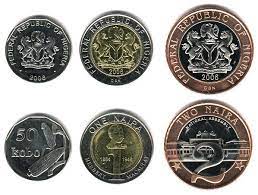The Nigerian House of Representatives has encouraged the Central Bank of Nigeria (CBN) to recognize the N2, N1, and 50 kobo coins as legal tender.
The commercial banks were also asked by the lower chamber to comply with the usage of coinage.
This resolution was a follow-up to a motion made by Muda Lawal (APC, Bauchi) during plenary on Tuesday.
Mr. Lawal had raised concerns in his motion over the faiths’ of non-acceptance after their readmission by CBN under the leadership of Sanusi Lamido.
He said that the non-acceptance of lesser denominations was to be blamed for the recent steady rise in costs of goods and services.
Nigeria’s inflation rate is now at 17.33, the highest in four years.
The current Russia-Ukraine war and its consequences on oil and food supplies, on the other hand, have also been blamed for the out-of-control inflation.
“Injecting low denominations and coins into the economy will go a long way toward reducing price inflation and stabilizing the economy,” Mr. Lawal added.
“Lack of coins and other lesser denominations has led to pricing being summed up to the nearest Naira equivalent,” he explained.
“Despite the massive budgetary sum that was spent by the federal government in the creation of coins as part of the legal tender, the aforementioned coins appear to be extinct at the present,” the congressman continued.
The motion was passed without debate, and the House Committee on Banking and Currency was tasked with enforcing it.
What you need to know about Legal tender currency
Legal tender is a type of money that courts of law must accept as adequate payment for any monetary debt. Legal tender varies by jurisdiction, but it is defined as “anything that, when presented in payment of an obligation, extinguishes the debt.”
The Central Bank of Nigeria is the exclusive issuer of legal tender money in Nigeria, according to Section 2 (b) of the CBN Act. The CBN controls the amount of money in circulation in the economy to maintain monetary and price stability.
